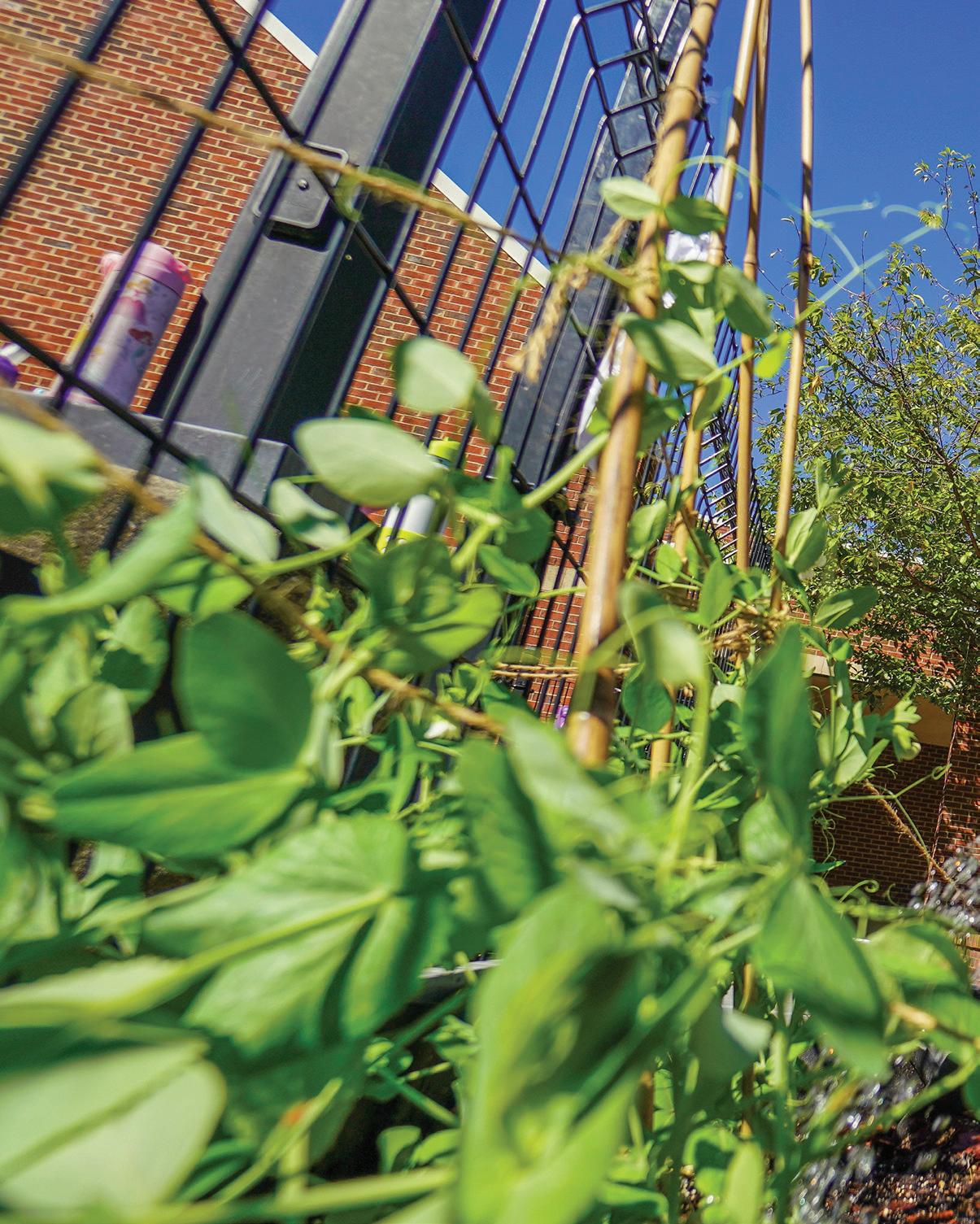
2 minute read
Growing Minds The Benefits of PK3 Gardening
“Wow. Look at how much our radishes have grown,” Margaret Inglis ‘37 expressed as she waved over her classmates, who were taking turns watering the vegetables a couple of garden beds down.
A group of Pre-Kindergarteners ran to her side, eager to investigate the colorful crop Margaret had just uprooted from the soil. The students took turns holding the vegetable, each admiring what had become of the seed they planted back in August and had been patiently cultivating ever since.
Margaret Inglis ‘37 helps water the Early Childhood garden.
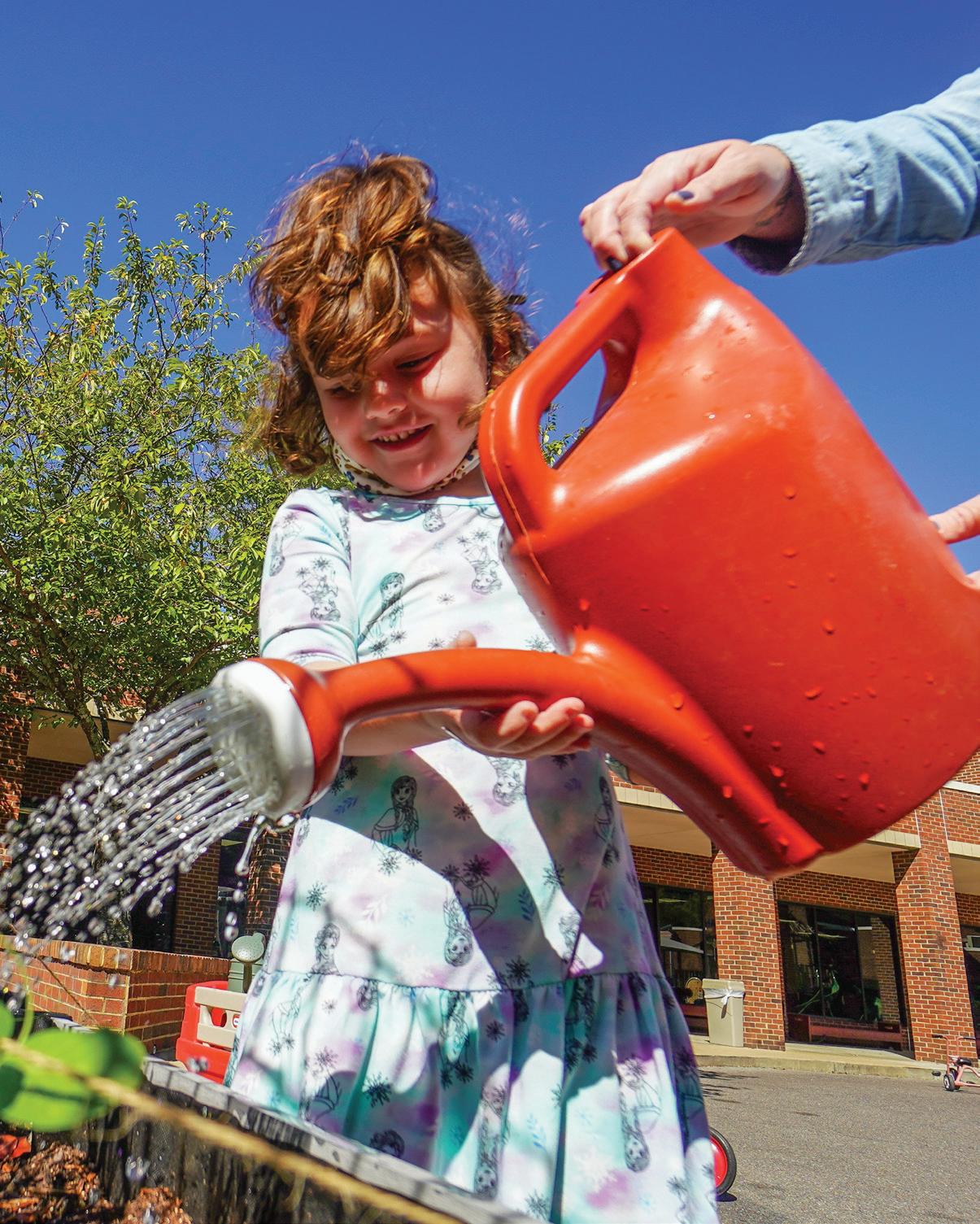
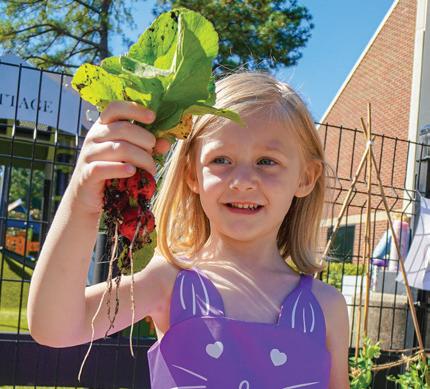
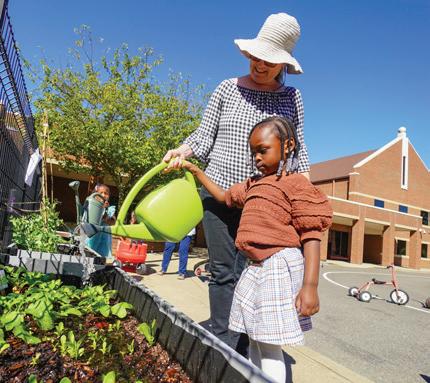
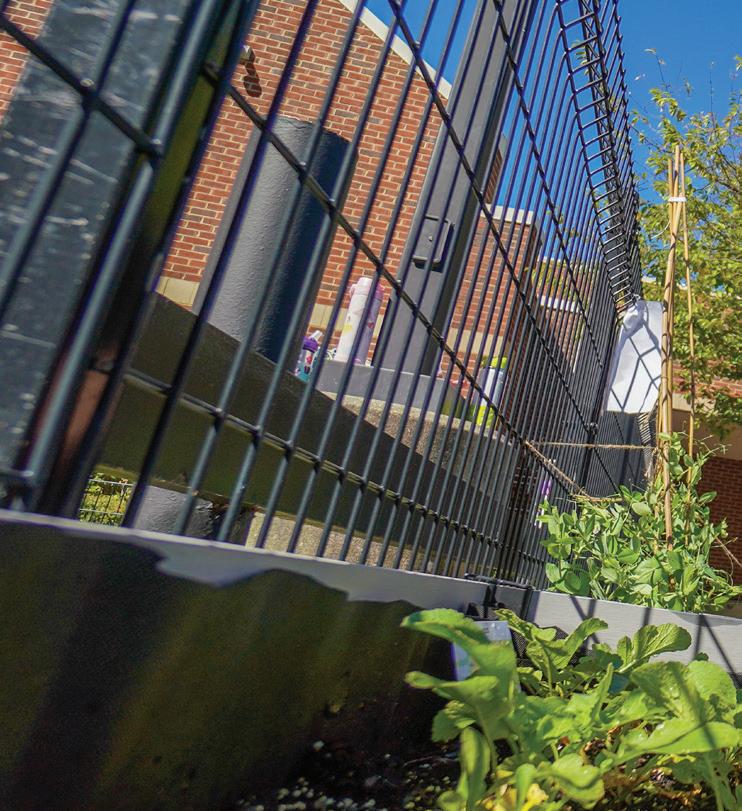
Tending to the Early Childhood Garden is an experiential learning process for students in Pre-Kindergarten that starts at the beginning of the school year and culminates right before summer break. While gardening provides a joyful collaboration for pre-kindergartners, it also promotes well-rounded learning by teaching math, science, literacy, social skills, emotional development and motor development.
“It is such a wonderful experience that the children get to be a part of for the whole year,” Pre-Kindergarten teacher Peggy Boyd said. “They see many different things happening all year long, from planting in the Fall, the beds sleeping in Winter, to more planting in Spring. We taste whatever we harvest. We also build a scarecrow, which is enormous fun!”
So far this year, the PK students have been growing radishes, lettuce, snow peas, turnips and carrots. However, the gardening process begins well before the first plant takes root, as students begin with learning about seeds, soil, gardening tools and the need for water and sunshine. The process also includes studying the life cycle of various plants, specifically pumpkins and sunflowers.
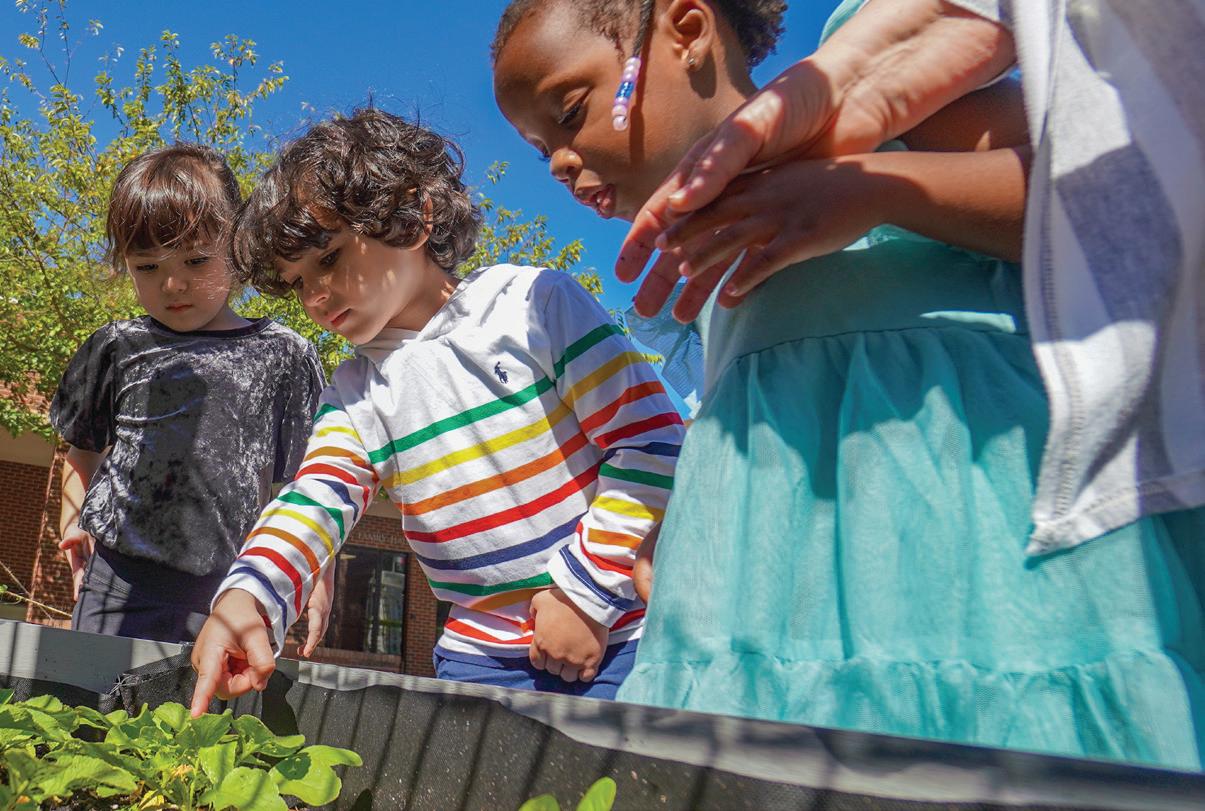
“Kids are more likely to try foods they grow, so hopefully, this leads to healthier eating,” Pre-Kindergarten teacher Deanne Helvering said. “Gardening also teaches emotional development by prompting students to practice patience as they wait for their vegetables to grow and the possibility of disappointment if the seeds do not successfully grow into harvestable plants.”
Additionally, gardening promotes literacy skills as PK students learn new vocabulary and read books about plants, along with physical and sensory learning through digging, using new tools, planting, watering, smelling and tasting.
“Gardening also builds confidence as children see they’re capable of planting a seed and watching it grow, knowing that they watered and cared for that plant,” said Pre-Kindergarten teacher Jodi Howard.
The gardening adventure continues following Winter Break, when the PK classes clean out their beds and plant flowers they hope will bloom just in time for Spring.
Top left: Willow DeBord ‘37 showcases radishes she pulled from the garden.
Bottom left: PK3 teacher Jodi Howard assists Lya Okello ‘37 with watering the garden.




